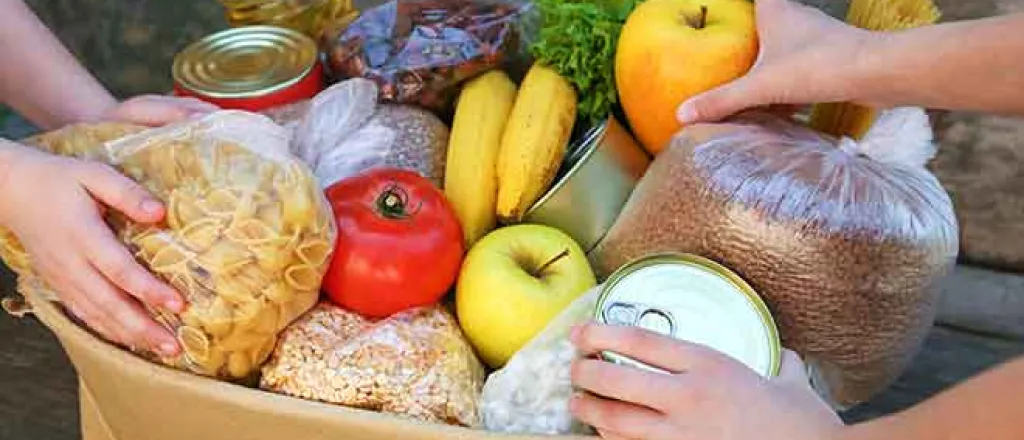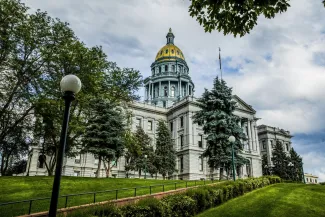
Colorado Democrats want to raise revenue for food assistance program
Colorado voters could be asked this November whether the state can keep extra tax money to fully fund universal school meals and offset lost federal funding for food assistance programs.
The Legislature referred Proposition MM to the ballot during its regular lawmaking session earlier this year, seeking to raise more money for the Healthy School Meals for All program. Senate Bill 25B-3, being considered during the current special session, would tweak that proposition to allow any leftover money to cover costs associated with the Supplemental Nutrition Assistance Program, or SNAP.
“This measure ensures Colorado continues to step up where the federal government is stepping back,” bill sponsor Katie Wallace, a Longmont Democrat, said ahead of the vote Friday morning.

© fotoguy22 - iStock - 1468912821
The bill passed through the Senate on party lines. It now heads to the House.
The universal school meal program is funded through limited income tax deductions on households earning $300,000 or more annually, approved by voters in 2022. The program has been more expensive than anticipated during its first two years, however, and there was a nearly $56 million budget shortfall for the program last year.
Lawmakers then referred a pair of propositions to this year’s ballot to raise more revenue and keep more money than originally allowed. Proposition MM would raise about $95 million more annually. About 200,000 tax filers, or about 6 percent of filers in Colorado, would be impacted. Proposition LL, which wouldn’t be impacted by the bill, would let the state keep about $13 million that would otherwise be returned to the impacted tax filers.
SB25B-3 would allow SNAP to benefit from that proposition if it passes. Funding for the food assistance program is threatened by the federal budget law passed by Republicans in Congress in July, to the tune of $50 million per year in new administration costs and between $90 million and $120 million starting in 2027 for new state match requirements, according to Abby McClelland with Food and Energy Assistance Division in the state’s Department of Human Services.
SNAP assists about 617,000 Coloradans with $120 million in benefits per month, McClelland said.
“The minimization of SNAP in (the federal bill) is cruel, and what we are asking the voters is to please allow any money overage that we might collect for Healthy School Meals for All, after HSMFA is fully funded, to go to SNAP to cover the shortfall,” bill sponsor Senator Dafna Michaelson Jenet, a Commerce City Democrat, said during its Senate committee hearing on Thursday.
Republican Senator Lisa Frizell, a Castle Rock Republican, countered that the state needs to find ways to run SNAP more efficiently to save money.
“If I were reading the lines on (the new federal law), I’d think that maybe they’re suggesting states need to be more efficient with how they administer this program,” she said. “This is an important program to those Colorado citizens who are most vulnerable, but are we doing the best job at administering this?”
















